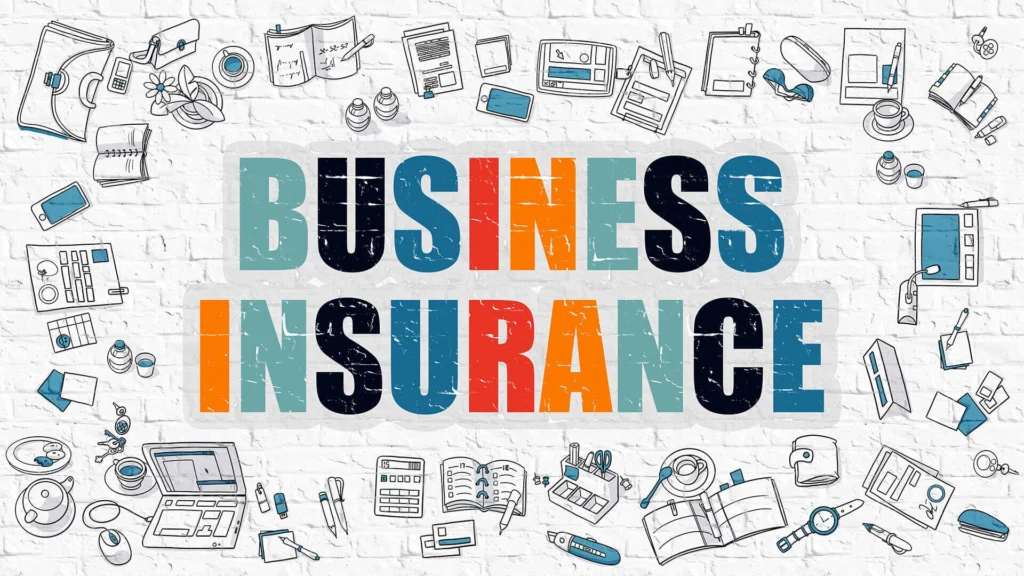Business income insurance helps protect your company’s revenue if a covered event—such as a fire, theft, or natural disaster—forces your operations to temporarily shut down. It ensures continued cash flow to cover payroll, rent, and other essential expenses when your business can’t generate income (source: Insurance Information Institute).

Content
Understanding Business Income Insurance
Also referred to as business interruption insurance, this policy is designed to safeguard the income a business would have earned if its operations hadn’t been disrupted. It doesn’t cover physical damages—that’s the role of property insurance—but rather the lost income during the downtime.
Business income insurance is particularly essential for companies that rely on physical locations or equipment to generate revenue. Without this coverage, a disaster could result in weeks or months of lost profits, leaving a business vulnerable to closure.
Why Your Business Needs Income Protection
No matter the size or industry, any business can face an unexpected disruption. Fires, storms, or supply chain failures can halt operations instantly. In such scenarios, having business income insurance can mean the difference between recovery and permanent shutdown.
Whether you own a retail store, a manufacturing unit, or a small café, business interruption insurance protects not just your property but your financial stability. For small businesses, which often operate on thin margins, the financial buffer provided by this policy is crucial.
What Business Income Insurance Typically Covers
A comprehensive business income insurance policy generally includes:
- Lost revenue due to operational shutdowns
- Fixed operating costs such as rent, mortgage, utilities
- Employee wages and payroll obligations
- Taxes that continue to accrue during the interruption
- Loan payments still owed during downtime
- Temporary relocation costs if the business must move
This type of commercial insurance ensures continuity even when external events put a stop to day-to-day operations.
Who Should Consider This Coverage?
Business income insurance is suitable for nearly all business types, but it is especially critical for those whose income is tied to physical infrastructure. This includes:
Small Business Insurance
Independent retailers, local cafes, salons, and service providers often lack the financial cushion to withstand prolonged closures. Incorporating small business insurance with income coverage can provide a strong safety net.
Online Sellers and E-Commerce
For those operating out of a warehouse or storage facility, a disruption like fire or flooding can halt shipments. Business insurance for online sellers is essential when product access is interrupted.
IT Professionals and Consultants
Even digital businesses can face income disruption due to power failures, cyberattacks, or equipment damage. Business insurance for IT professionals can protect against these unique risks.
Home-Based Businesses
Home-run ventures may wrongly assume homeowner’s insurance covers their business losses. Business insurance for home-based businesses ensures protection when your home office becomes unusable.
How It Differs from Other Types of Business Insurance
To understand where business income insurance fits, it’s helpful to compare it with other standard policies:
| Type of Insurance | What It Covers |
| Property Insurance | Physical damage to building/equipment |
| Business Income Insurance | Lost revenue due to temporary shutdown |
| General Liability Insurance | Third-party bodily injury or property damage |
| Commercial Insurance | A broad term including all business-related coverage |
Combining business liability insurance, property, and income protection under a single commercial insurance package provides comprehensive coverage.
Choosing the Right Policy
Selecting the right business insurance policy involves assessing your unique risks. Consider the following:
- Industry and location: Is your area prone to floods, storms, or civil unrest?
- Business structure: Do you operate from a single site or multiple locations?
- Dependency on equipment: How long could your business last without it?
When searching for a provider, focus on the best business insurance companies with a strong history of claim handling, flexible policies, and transparent exclusions. Always review the policy’s waiting period—the number of hours that must pass before benefits begin—and the maximum indemnity period, which defines how long benefits are paid.
Understanding the Cost
The cost of business income insurance varies based on multiple factors:
- Type of business and revenue size
- Risk exposure (e.g., location, crime rates, weather events)
- Existing safety measures (sprinklers, alarms)
- Desired coverage limits and duration
According to market data, premiums range from $500 to $3,000 annually for small to medium-sized businesses. To get accurate estimates, request a business insurance quote from multiple carriers.
A helpful tip: bundle business insurance coverage—liability, property, and income insurance—to benefit from multi-policy discounts.
Making a Claim: What to Expect
If your business experiences a covered event, follow these steps for the business interruption insurance claim process:
- Document the event immediately—photos, videos, and official reports are crucial.
- Notify your insurer within the time limit outlined in your policy.
- Provide financial documentation showing expected vs. lost income.
- Keep receipts of ongoing and additional expenses like relocation costs.
- Stay in communication with your claims adjuster to track the process.
Make sure to clarify your policy’s requirements in advance, so you’re fully prepared if an interruption occurs.
Tips to Lower Premiums and Maximize Value
Controlling costs while ensuring comprehensive protection is possible. Here are expert-recommended tips for saving on business insurance:
- Raise your deductible: A higher deductible often reduces premium costs.
- Bundle policies: Consolidate multiple coverage types with a single provider.
- Conduct annual reviews: Update your coverage as your business grows.
- Invest in safety: Alarm systems and risk mitigation measures can lower premiums.
- Avoid over-insuring: Tailor your business insurance policy to your actual needs, not worst-case scenarios.
Final Thoughts
In an unpredictable world, business income insurance provides critical financial continuity when your operations are disrupted. Whether you’re a retailer, tech consultant, or freelancer, this coverage acts as a financial lifeline during unexpected closures.
Pairing it with other coverage types like business liability insurance and commercial insurance ensures your business is well-positioned to survive—and thrive—despite setbacks. Don’t wait until a disaster strikes. Request a business insurance quote today and protect what you’ve built.
Frequently Asked Questions
What does business income insurance cover?
It covers income lost when a business must temporarily close due to a covered peril such as fire, theft, or storm damage. It also reimburses for fixed costs and operating expenses during that downtime.
Is business interruption insurance the same as income insurance?
Yes, they are often used interchangeably. Both terms refer to policies that replace lost revenue due to temporary operational disruptions.
Is this insurance needed for home-based businesses?
Yes. Business insurance for home-based businesses protects income in case the workspace becomes unusable due to accidents or disasters not covered by personal homeowner policies.
How long does business income insurance pay out?
It depends on the policy. The maximum indemnity period can range from 30 days to over 12 months, depending on your insurer and chosen coverage.
Can I claim lost future income?
Policies usually cover projected income based on historical financial records, but not speculative future growth. Accurate and up-to-date bookkeeping helps ensure a fair claim.

A business blog writer at the age of 19, Francis is a jack-of-all trades when it comes to writing. He specializes in content creation for businesses and blogs. With years of experience under his belt, he’s able to provide both written and video content that will engage readers and viewers alike!





